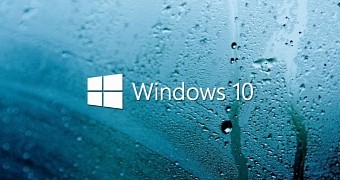The free Windows 10 upgrade promo has ended, but this doesn’t necessarily mean that Microsoft has left all the negative comments in the rear-view mirror after the trouble created to some users with the more or less forced upgrades.
The Electronic Frontier Foundation (EFF), an organization that fights for users’ rights in the digital world, has posted an in-depth look at Microsoft’s Windows 10 upgrade practices, while also commenting on the way the company handles user data and respects privacy with data collection.
While this Windows 10 upgrade system analysis comes a bit too late, the EFF says that Microsoft often installed the new operating system on users’ computers without their consent. These are all actually claims that we’ve heard before from users who were allegedly impacted by this unexpected push.
“Time after time, with each update, Microsoft chose to employ questionable tactics to cause users to download a piece of software that many didn’t want. What users actually wanted didn’t seem to matter,” the EFF says.
Microsoft needs to address these claims in the next Windows version
The organization goes on to explain that Microsoft is still violating users’ privacy with Windows 10, as it collects an insane amount of data that the company sends from PCs running the operating system to its servers for further inspection. EFF agrees that this data is needed to improve certain features of Windows 10 and that users can actually disable them, but it calls for the company to change this behavior in future Windows versions to fully respect privacy.
“Microsoft should come clean with its user community. The company needs to acknowledge its missteps and offer real, meaningful opt-outs to the users who want them, preferably in a single unified screen. It also needs to be straightforward in separating security updates from operating system upgrades going forward, and not try to bypass user choice and privacy expectations,” it stresses.
EFF points out that there were many users who contacted them in order to take action against Microsoft, and this is why the organization is now calling for the software giant to find a way to address all these claims in future versions of Windows.
“We at EFF have heard from many users who have asked us to take action, and we urge Microsoft to listen to these concerns and incorporate this feedback into the next release of its operating system. Otherwise, Microsoft may find that it has inadvertently discovered just how far it can push its users before they abandon a once-trusted company for a better, more privacy-protective solution.”

 14 DAY TRIAL //
14 DAY TRIAL //